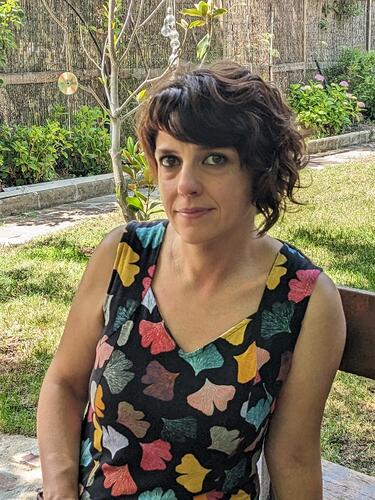
March 3, 2025
What is your current role at Yale University?
- I am Senior Lector I of Spanish and Associate Research Scholar
What are your main responsibilities?
- I teach basic and Intermediate courses of Spanish language and culture, prepare lessons and activities, review and grade assignments, offer office hours, and contribute to other activities related with my role at the department.
What do you like most about your work?
- I love my work, even if at the end of the day I am exhausted, I can say that I do not get tired of it and that teaching Spanish is a very gratifying task for me. First of all, it allows me to share my language and the culture of my country, or of other Spanish-speaking countries, with students and people who want to learn about it. Secondly, it has made it possible for me to work while traveling around the world, meeting people from other cultures and open my mind, as well as coming here and meeting new students every semester. Another aspect that I really like about my job is that in teaching language there is room for creativity and playfulness, as well as for developing critical thinking and research. I love the fact that it is a job where I am continuously learning something new, not only to stay up to date on teaching methods, cultural resources to bring to the classroom, etc., but also from the people who are around me: my department colleagues and the students.
How does your job affect your general lifestyle?
- My experience here is very different from the experiences I’ve had previously in and outside of the United States. Spanish classes at Yale are very demanding and fast-paced. At the end of the semester, students end up well prepared to move on to the next level, and this is thanks to their effort and commitment. This is a source of great motivation for me, but it also demands a lot of daily hard work and devotion. For me, the strongest challenge is to find a healthy balance between my family life and my life as a teacher and also as a researcher in and literature, as these are three areas that define my identity and that I strive to nurture. Although I believe that the search for equilibrium between the personal and the academic, work and life, is something very common and very human.
How did you begin your career?
- It started almost an eternity ago. From a very young age, I wanted to be a teacher (it didn’t matter the subject) so I taught lessons to anyone who stopped in front of me (most of the time, it was dolls). But, if I remember correctly, the first Spanish classes I taught were at the University of Alcalá, in Madrid, as part of a teacher training course I had taken. Although it was a challenging experience, I really enjoyed it. Then, I wanted to travel to the farthest places possible while working, and teaching Spanish opened the doors for me to do both, as well as having a lot of fun. After those first experiences, I decided to pursue a Master’s degree in Teaching Spanish. Then, I received government scholarships that allowed me to enjoy longer stays teaching at different universities and countries while gaining more experience and strengthening the first steps of my career. While doing this, and as part of my education and also my devotion to Hispanic literature, I completed a PhD in Hispanic Philology.
What steps would you recommend one take to prepare to enter this field?
- I believe it is very important to have a broad and general knowledge of the culture and literature of the Spanish-speaking countries. It is also necessary to have a solid understanding and command of Spanish grammar and pragmatics. Likewise, I recommend having a strong foundation in pedagogy to acquire knowledge about teaching methods and approaches, whether one is teaching language, literature, or culture courses. In my opinion, it is very important to practice teaching in different contexts and for different communities, and not be afraid of making mistakes, as this is a path where we are always learning.
What skills, abilities, and personal attributes are essential to success in your job/this field?
- This depends on each individual, what works for me may not work for someone else. In Spanish there is an old saying that goes like this: “cada maestrillo tiene su librillo”, and can be translated, more or less, as “every teacher has their own unique approach”. That said, I think it is essential to have a vocation for teaching and research, an open mind, commitment and compassion, a sense of humor, a bit of psychology and a lot of flexibility, as well as being well organized and patience.
If you could do it all over again, would you choose the same path for yourself? If not, what would you change?
- I would do it again without hesitation and without changing anything.
What does YLNG mean to you and how have you contributed as a member?
- I believe that affinity groups at Yale play a vital role in fostering a sense of belonging and community among students, faculty, and staff. These groups provide spaces for individuals with shared identities, backgrounds, or interests to connect, support one another, and address common challenges. YLNG is doing an incredible work in welcoming new members and facilitating ways of collaboration and personal growth within the Latinx community at Yale. Personally, I find all the activities offered by the group to be fun, interesting, and very engaging for the community or for people outside the community who want to participate and learn. I wish I could have more time to contribute and meet new people with whom I can share interests, likes, experiences or just laughs.